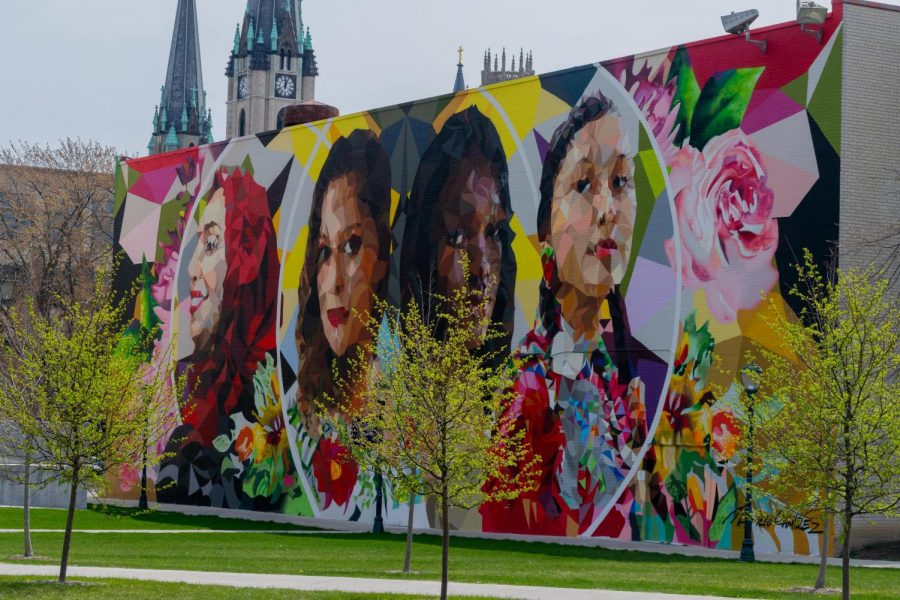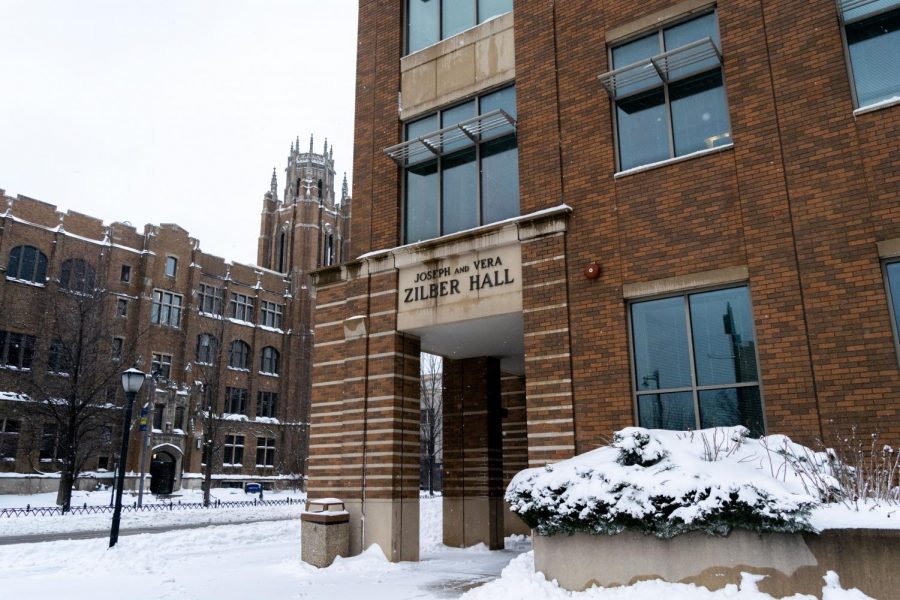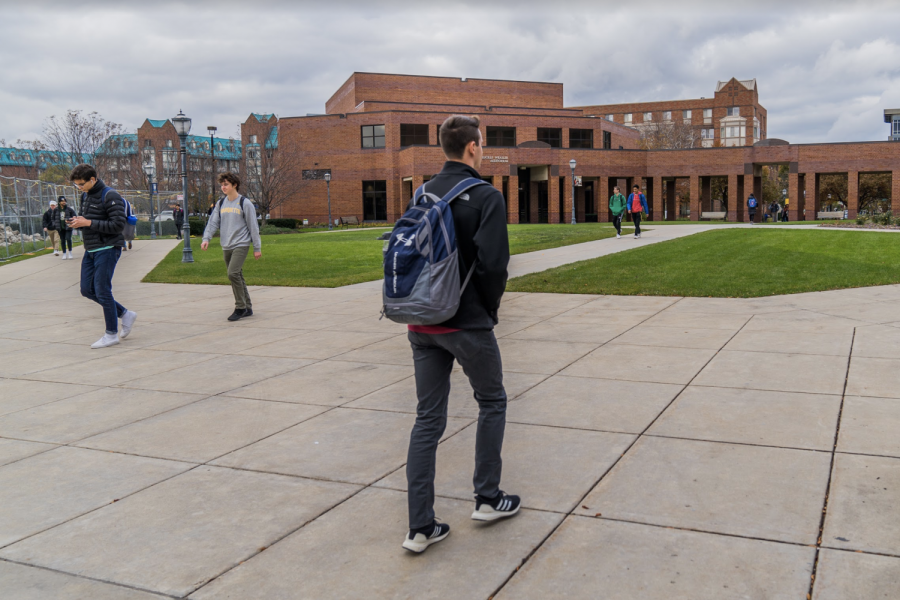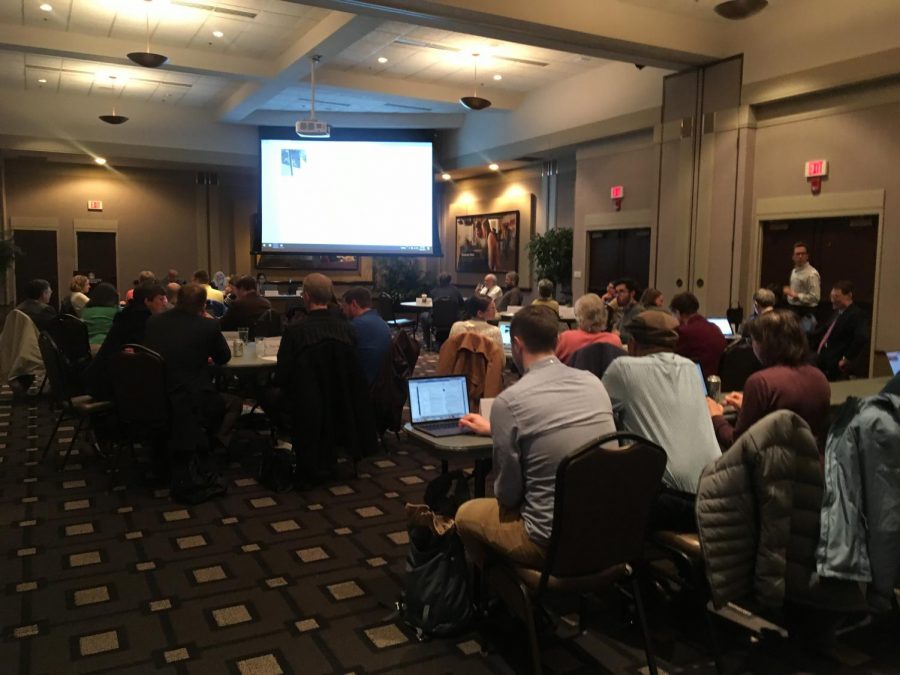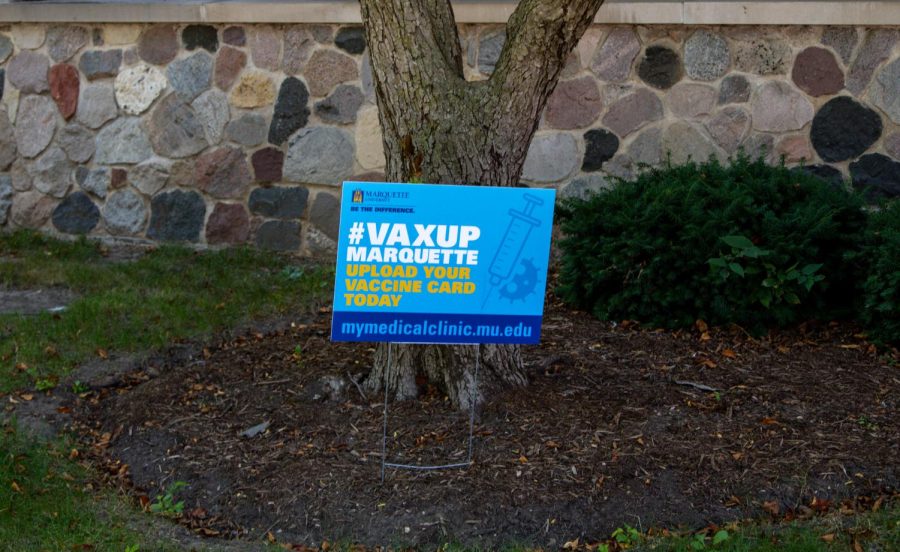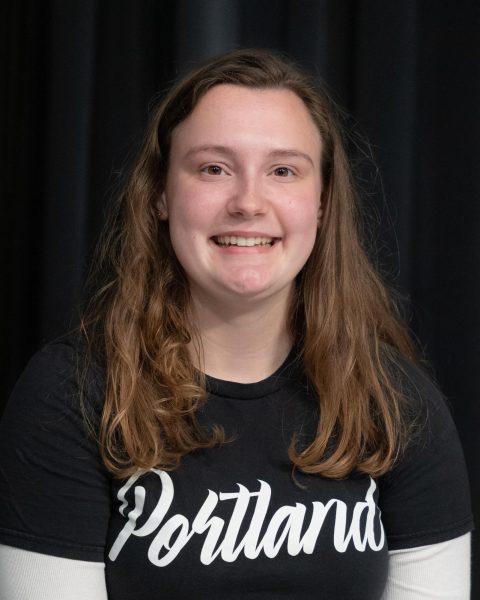Marquette has continued to make progress on becoming a Hispanic-Serving institution. Back in 2016 when the initiative was originally introduced, the university had a Hispanic and Latinx enrollment of 9.7%.
The university’s Hispanic-Serving Institution initiative has gained 4.2% more undergraduate students since the fall of 2016, making this year’s student body the most diverse in Marquette’s history.
The original goal, introduced in the spring of 2016, was aimed at increasing Hispanic student enrollment by more than 15% within 10 years. The initiative’s goal is to increase Latinx undergraduate enrollment to represent 25% of the student body by the 2026-27 academic year.
“One of our strategic plan goals is around creating a culture of inclusion — if Marquette is to be a leading university, we need to diversify our student body,” former Provost Dan Meyers said back in 2016, when the goal was first introduced.
To become an HSI, the institution must be either a two or four year accredited college, have a significant enrollment proportion of low-income students and have Hispanics represent 25% of the full-time undergraduate student body.
However, last semester Provost Kimo Ah Yun stated in a virtual coffee chat Sep. 29, 2020 that the HSI initiative was no longer part of the university’s strategic plan. The strategic plan helps to map out the university’s goals and future plans.
Ah Yun and Jacqueline Black, associate director for Hispanic initiatives, said that the university may not be able to become an HSI within the timeline that was originally set. The original timeline would call for the university to become an HSI by the 2026-27 academic year.
“The HSI Steering Committee is working with university administrators and campus partners to determine a pathway forward and we are committed to continuing the work to attract and support underrepresented students,” Black said in an article about the Sep. 29 coffee chat.
The university’s Hispanic-Serving Institution initiative has gained 4.2% more undergraduate students since the fall of 2016, making this year’s student body the most diverse in Marquette’s history.
Becoming an HSI opens eligibility to apply for Title V funds. The funds may be used for educational materials, improved facilities, faculty development and more.
“Our vision is to be among the most innovative and accomplished Catholic, Jesuit universities in the world – that cannot happen unless we embrace the perspectives, cultures and knowledge of our diverse students, faculty and staff,” Ah Yun wrote in a Marquette Today statement.
Some efforts Marquette has made to establish itself as an HSI include an overall 15.4% increase of the Hispanic population between students, faculty and staff. Funds for the community include $33 million in financial aid for the 2020-21 academic year and over $200,000 raised in 2020 for the Ellacuria Scholarship for undocumented students.
“I am proud of you and of the progress being made through your efforts. But the work is nowhere near done,” Ah Yun said in an April 15 Marquette today statement . “While we are in tough financial times, I have been working with the HSI steering committee to determine our way forward. Rest assured, the important work of attracting and supporting underrepresented students will continue.”
In 2016 there were no HSIs in Wisconsin. Since then a group of Wisconsin institutions such as Alverno College, Marquette University, Milwaukee Area Technical College, Milwaukee Institute of Art and Design, Mount Mary University, the University of Wisconsin-Milwaukee and the University of Wisconsin-Parkside have formed the Hispanic Serving Institutions Network of Wisconsin.
These institutions are working toward becoming an HSI or have already become one.
Alverno College was the first school in Wisconsin to receive the designation back in 2017. St. Peter’s university in New Jersey was the first Jesuit school to become a HSI.
While Marquette has made progress, there is still a ways to go before the university can officially receive the HSI designation by the original timeframe of the 2026-27 academic year.
A previous version of this story incorrectly stated that Jacqueline Black attended the Sept. 29 Coffee Chat. She did not. The Wire regrets this error.
This story was written by Megan Woolard. She can be reached at megan.woolard@marquette.edu.
Vanessa Rivera contributed to this report. She can be reached at vanessa.rivera@marquette.edu


